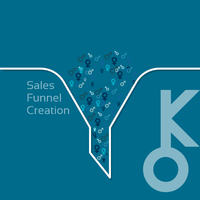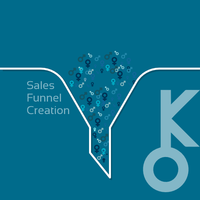Understanding the Sales Funnel: Concept and Importance
The sales funnel concept is a framework used by businesses to understand and track the journey that potential customers take from discovery to purchase. It helps businesses visualize and analyze their customer acquisition process, enabling them to optimize their marketing strategies and improve conversion rates.
What is a Sales Funnel?
A sales funnel can be visualized as an inverted pyramid or funnel-shaped structure. At the top of the funnel are leads or potential customers who have shown some level of interest in a product or service. As these leads move down the funnel, they progress through various stages, becoming more qualified and engaged until they reach the bottom where they convert into paying customers.
The typical stages of a sales funnel include:
- Awareness: In this stage, potential customers become aware of your business, products, or services.
- Interest/Evaluation: Leads show interest in what you offer and start evaluating whether it meets their needs.
- Consideration/Decision: Leads consider different options available to them and decide which one suits them best.
- Purchase/Conversion: The final stage when leads make a purchase and become paying customers.
Importance of Understanding Sales Funnels
Understanding the sales funnel concept is crucial for several reasons:
1) Better Customer Journey Mapping:
By visualizing the customer journey from awareness to conversion, businesses can identify pain points or areas where prospects might drop off in their decision-making process. This allows companies to make targeted improvements at each stage, ensuring a seamless experience for potential customers.
2) Enhanced Marketing Strategy:
By analyzing data collected at various stages of the sales funnel, businesses can gain valuable insights about customer behavior during different phases of their decision-making process. This information aids in refining marketing strategies based on audience preferences, enabling more effective targeting and messaging.
3) Improved Conversion Rates:
Identifying bottlenecks or obstacles within the sales funnel allows businesses to make necessary adjustments, which can positively impact conversion rates. By optimizing each stage of the funnel, companies can increase their chances of converting leads into paying customers.
4) Better Resource Allocation:
Understanding the sales funnel helps businesses allocate resources more efficiently. By knowing where potential customers are dropping off or where most conversions occur, companies can strategically invest in areas that generate the highest return on investment (ROI).
5) Customer Retention and Advocacy:
The sales funnel concept doesn't end at the purchase or conversion stage. It is equally important for businesses to focus on customer retention and advocacy. Understanding the post-purchase journey allows firms to nurture existing customers, strengthen relationships, and encourage them to become advocates who refer others to your business.
Conclusion
In conclusion, understanding the sales funnel concept and its importance is essential for businesses looking to optimize their marketing strategies, improve customer acquisition rates, and enhance overall business performance. By visualizing and analyzing this framework, companies can effectively guide potential customers through their decision-making process from initial awareness to final purchase or conversion.
















